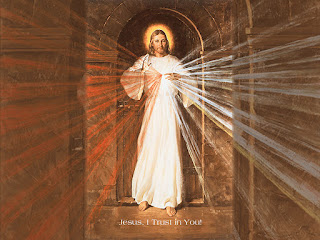April 24, 2016
Fifth Sunday of Easter
Acts 14:21-27; Psalm 145; Revelation 21:1-5; John 13:31-33A. 34-35
Whenever I interview couples preparing
for marriage, one of the important questions I ask them is this, “Is there any
circumstance or person that forces you to enter into this marriage?” So far, I
have not encountered couples answering “YES” to this question. Because if they answered YES, then there is no point to pursue getting married. To force someone to love you is not really
love. Because real love is something
that you freely give to someone. Jesus in
the Gospel today tells us, “I give you a new commandment: love one another as I
have loved You.” If love must be free, why does Jesus command us to love? Isn’t it that love must be spontaneous? What
exactly is “new” about the command of Jesus to love? Isn’t it that the call to
love has always been there even before the time of Jesus? What is the purpose
of this new commandment to love?
JESUS REFERS TO LOVE AS A DECISION OF THE WILL. Our common understanding of love
is more of an emotion or a romantic feeling. This is what we see in love
stories portrayed in movies or TV programs. But Jesus invites us to a deeper
meaning of love as a decision of the will to seek the good of the other person.
It is true that the experience of love may be accompanied by romantic feelings,
affection and tenderness. But it is not always the case. When a father gets up
in the morning and goes to work to provide the needs of the family, that is
love. When a mother prepares the food and brings the children to school, that is
love. When children commit mistakes and listen to the guidance of their parents,
that is love. When grown-ups take care of their parents when they reach old
age, that is love. Notice that there is no romantic feeling involved here. But it
is clear that the motivation behind doing these things is none other than love –
the decision, the free act of the will to seek the good of the other. This is
what Jesus refers to in his new commandment of love. But what exactly is new in
this commandment?
JESUS INVITES US TO LOVE IN THE SAME WAY THAT HE LOVED US. It is not just any brand of love. Jesus emphasizes His own brand
of love. This is something new. We are asked to love in the way how Jesus loved
us – His sacrificial love, disinterested and gracious love not only for his
disciples but for all. When Jesus said
“love one another.” He did not say, “Love one another when you are both young
or when you are both healthy.” He did not say: “Love one another when the other
has stopped offending you.” He did not say: “love one another when the other is
good to you.” Jesus simply says, “Love one another,” without any conditions or
limitations. This is the brand of the love of Jesus. What is the purpose of following the new
commandment to love?
As we come closer to election
day, I notice that during campaigns, there is a lot of giving. What is the motivation
behind that act of giving? I hope that the act giving is done out of love and not just to buy votes.
During campaigns there are lots of beautiful promises, but if there is no real
love, they are just propaganda. Hopefully when we exercise our right to vote in
a few weeks, may we do it out of love for our country.
My brothers and sisters, on this
5th Sunday of Easter, Jesus gives us a new commandment to love. Love here is a
free act of the will to seek the good of the other. It is new in the sense that
our standard of loving must imitate the way how Jesus loved us. Let us pray for
the grace to practice this love, so that people will recognize us as followers
of Christ.



